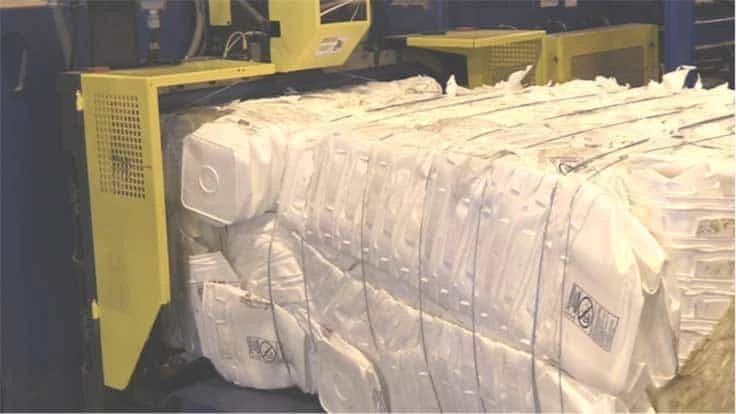
Association of Plastic Recyclers
The Association of Plastic Recyclers (APR), Washington, says it has confirmed its continued commitment to recycling grocery rigid plastics with a renewed push to encourage retail grocery chains to aggregate and market their behind-the-counter rigid plastics. Recyclable items common to retail groceries include bakery and deli pails and buckets, seafood trays and lids as well as bulk pharmaceutical containers, all manufactured from high-density polyethylene (HDPE) and polypropylene (PP) resins.
According to a news release from the APR, the association has launched a website to provide hands-on guidance and information about recycling grocery rigid plastics. The site now includes photos, training videos and case studies for retail grocery operations and corporate sustainability personnel. New and updated items include a Program Summary Flyer, an updated “How-To” Guidebook and a Baled Material Economics Worksheet that retail grocers can customize to estimate savings from waste diversion and recycled material sales for their operations.
“The APR estimates that U.S. supermarkets have the potential to generate over 300 million pounds of rigid plastics over the course of a year in behind-the-counter applications, including pharmacy stock bottles, which can double a store’s volumes,” says Kate Eagles, APR program director. “This is easily recoverable, stackable material, and is typically up to 450 percent more valuable per ton than [old corrugated containers] OCC. We encourage grocery retailers to take a look at what this program can offer them in terms of waste reduction and cost savings and how it can contribute to meeting corporate sustainability goals.”
The new website and related tools are part of a renewed effort by APR, with support from the Washington-based American Chemistry Council, to expand the retail grocery rigids plastics recycling program started in 2013, APR reports. By 2018, more than 4,500 stores were participating in the APR-initiated program, generating about 18 million pounds of recyclable plastics.
Latest from Recycling Today
- ReMA opposes European efforts seeking export restrictions for recyclables
- Fresh Perspective: Raj Bagaria
- Saica announces plans for second US site
- Update: Novelis produces first aluminum coil made fully from recycled end-of-life automotive scrap
- Aimplas doubles online course offerings
- Radius to be acquired by Toyota subsidiary
- Algoma EAF to start in April
- Erema sees strong demand for high-volume PET systems






